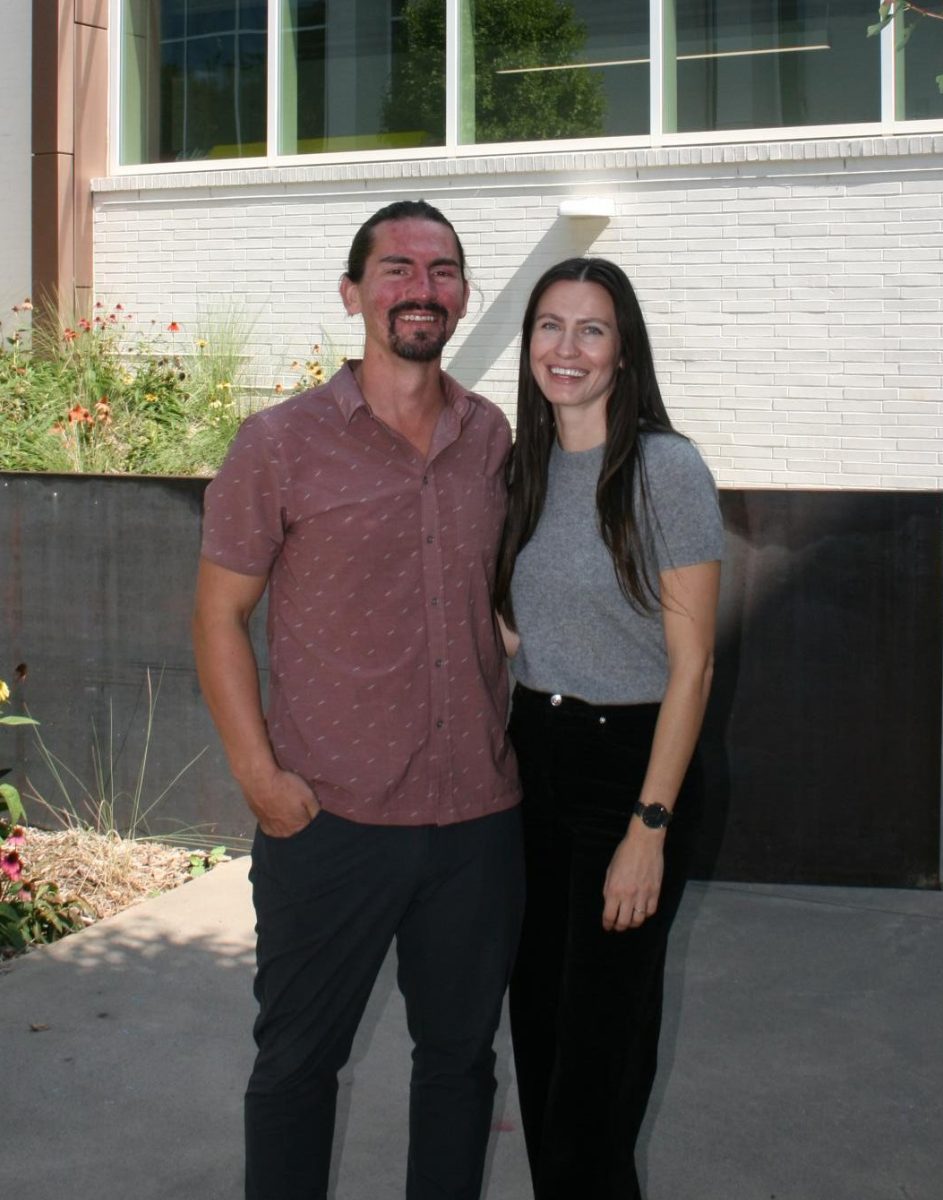Katherine Valde, assistant professor of philosophy at Wofford College, along with her husband, Eric Scarffe, who is an assistant professor of philosophy at Florida International University, submitted a paper discussing philosophy and Taylor Swift.
The couple submitted their paper to the Blackwell volume of Pop Culture and Philosophy, and the article was approved and will be published within the next year.
The goal of the Blackwell Pop Culture and Philosophy series is to make philosophy more accessible to the public.
Philosophy is frequently viewed as an abstract concept, so the Blackwell Philosophy and Pop Culture talk has aimed to bridge popular topics with the study of philosophy.
Scholars are often engaged in philosophy outside of the classroom, and philosophical implications can be seen across a wide variety of pop culture topics.
“The Office,” “The Twilight Saga” and “The Hunger Games” are all highlighted in the Blackwell Pop Culture and philosophy series.
Both Scarffe and Valde have been Taylor Swift fans for years. When they saw that Blackwell was searching for submissions, they knew they had to submit something.
“Swift is an artist, with a point of view (that) has something really interesting to say,” Scarffe said.
Scarffe and Valde both recall their first experiences listening to Taylor Swift as teenagers, driving around with friends.
For both of them, Swift and her music elicit feelings of nostalgia.
The “Fearless” album came out when Valde graduated high school, and she remembers driving around alone and listening to Swift’s song “White Horse.”
Scarffe and Valde tossed around multiple ideas about the topic of their paper but ultimately settled on “I Knew You Were Trouble.”
The two wanted to explore the implications of the song and how first impressions and their impacts are discussed in the song.
Kevin DeLapp, chair of the philosophy department at Converse University, heard about the two writing this paper, he knew his students would love to hear about it. He hosted a talk at Converse on Oct. 12 in Lever Auditorium in Kuhn Hall.
Roughly 15 students from Wofford and Converse, as well as community members, were present.
The two developed three interpretations of the song in their paper, titled “The Trouble with Knowing You Were Trouble.”
The first interpretation of the song was more of a literal one, asserting that Swift knows that someone is trouble based on a first impression.
However, this interpretation could elicit something sinister. First impressions based on appearances alone could result in something superficial and discriminatory, like racial profiling.
The second interpretation they proposed was one in which the agency was placed on Swift, meaning she knew that the person walking in was trouble for herself.
This could elicit a type of faux-feminism.
The third and most supported interpretation was that Swift noticed from nonverbal cues and body language that this person was trouble, whoever they might be.This interpretation considers the nuances of women’s experiences with men.
Swift is deciphering between vibes and logic within herself.
Women, or other minority groups, are often more attentive and aware of nonverbal cues as a measure of safety.
“Intuition and vibes are genuine routes to knowledge, we are just trained not to listen,” Valde said.
Scarffe and Valde made it clear that their discoveries of Swift and theorization of this lyric are not a literary criticism but instead a tool of showcasing epistemology, the study of knowledge, towards average people with little to no philosophical background.
Chanson Bullard ‘26 attended the Converse University talk because she thought it was an interesting topic and she wanted to support Valde.
“I think that if an event like this was hosted at Wofford, more students would come,” Bullard said.
All involved agree that Swift is pulling listeners in, not solely based on her catchy songs or kind persona, but because she is speaking to the human experience.
“There is something valuable about taking Swift seriously poetically and intellectually,” Scarffe said.
Valde and Scarffe’s paper is going through final revisions and will come out sometime within the next year.
























